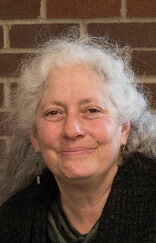Many of us have fears about growing older: the potential of losing friends and family; cognitive decline; losing our abilities to do some of the things we love; living with chronic conditions; and giving up freedoms we have grown accustomed to. And since the coronavirus has been more deadly for those of us with underlying conditions, and most people over 50 have at least one chronic condition, older adults in this worldwide pandemic have been especially hard hit. In the time of the coronavirus, many older adults are doing the best that they can just to stay alive, and haven’t been able to focus on much else. Though it is hard to prioritize our health beyond avoiding the coronavirus, and ground ourselves in a larger life purpose when our way of life has been derailed, it is also true that this extraordinary time offers an opportunity to clarify our priorities and revitalize our steps toward health.
It is true that we will find ourselves in some hard situations, but we are never without options, and with a strong sense of purpose, we can find our compass.
Life and Death
Stephen Levine, author and teacher best known for his work on death and dying, challenges us to engage in a year-long experiment where we act as if the year ahead of us is our last. He describes how when people are faced with the reality of their death, they feel a sharpened focus on how they want to live. Levine writes, “When people are told they have only a short time to live, they speak of catching up with their lives just ‘in the nick of time.’ Many people speak of interests that had to be put aside because of family responsibilities or social acceptability. Some, recognizing their desires, bought themselves a cello that they had always wanted or a lathe, or a canvas stretcher or a new computer crammed with art programs. Some were drawn to long walks in the woods or sitting quietly by the sea. Some went back to church; some took up a meditation practice. Many said they would have adopted a gentler pace of life, changed their surroundings, been less preoccupied with social and material ambitions. Almost all said that they would have slowed down and stopped to smell, if not plant, the roses.” By taking on this year-long experiment, we might find “healing, joy and revitalization.” (A Year to Live: How to Live This Year As If It Were Your Last, Stephen Levine, Bell Tower, New York, 1997.)
What would you like to commit to in order to revitalize your life?
Viktor Emil Frankl, an Austrian neurologist and psychiatrist as well as a Holocaust survivor, writes about human hope in the face of tragedy and the importance of saying “yes” to life despite unbearable loss. He founded the field of logotherapy, helping people find meaning in their lives. Frankl states, “Having a sense of purpose in life offers a buffer against poor health. People with a life purpose tend to live longer.” It is true that we will find ourselves in some hard situations, but we are never without options, and with a strong sense of purpose, we can find our compass. “When we are no longer able to change a situation, we are challenged to change ourselves. Everything can be taken from a man but one thing: the last of the human freedoms—to choose one’s attitude in any given set of circumstances, to choose one’s own way,” says Frankl. (Viktor Frankl, Yes to Life: In Spite of Everything, Beacon Press, 2020.)
Frankl tells the story of a man who had been sentenced to life imprisonment and was deported to Devil’s Island, a French penal colony. When the ship was on the high seas, a fire broke out. Due to the crisis situation, the prisoner was released from his shackles to take part in the rescue work, and saved 10 lives. As a result, he was later pardoned. If he had been asked before leaving on the boat, whether continuing to live could have any kind of meaning for him, he would have had to shake his head, asking what could possibly be waiting for him. Sometimes, we suffer from those same feelings.
So though acceptance of our situation is important, we can still make goals and have hope for a joyous future. We don’t know what is waiting for us, what big moment, what unique opportunity for us to act in an exceptional way. Healthy living during these times means to commit to doing what we can to stay strong and healthy, even when we are not sure of what is ahead.
Here are some questions for us to consider:
- What is most important in our life at this moment?
- What are the things we value and are a priority?
- In what way are we living out these values?
- What are some of the things we wish to move toward in our life?
- When we think about the future, what are some things we would like to have in it?
- When we were children, what did we dream about doing with our life? How about now?
- What pain do we have to face and heal so that we can live life more fully?
- What does life expect of us? What task in life is waiting for us?
Do it before you feel it. Act.
“I slept and dreamt that life was joy. I awoke and saw that life was service. I acted and behold, service was joy.” (Rabindranath Tagore, poet)
During this isolated time, we are making goals for our health, not only to stay safe from COVID-19, but to make our lives richer, whether that means to stay active, to exercise, to eat well, to meditate, to garden, to get 7-9 hours of sleep, to integrate balance exercises while doing dishes, to make sure we have our medications, to do strengthening exercise, to stretch, or anything else that increases our quality of life. Sometimes, when we remember our reasons for living, our overarching goals, we get motivated to take better care of our health. Sometimes, when we set small goals to take care of our health, we remember our reason for living. Many of LifePath’s classes in Healthy Living are based on the premise that we change our minds and attitudes by doing, even before our heart is in it. By taking active steps for our health, we are saying “yes” to life.



